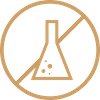B Vitamins
Today, the B vitamins include eight water-soluble vital substances known as vitamins B1, B2, B3, B5, B6, B12, biotin and folic acid. In contrast to other vitamins, the B vitamins cannot be stored in the body over a longer period of time and must therefore be supplied daily through food. The only exception here is vitamin B12, which can be stored in the liver.
Some of the B vitamins work very closely together and their effects are interdependent. It is therefore important to ensure an adequate supply of all B vitamins. This is not always easy: as the B vitamins are distributed across all food groups, only a very balanced diet provides all B vitamins in sufficient quantities. Consequently, even large nutritional studies repeatedly show significant gaps in the supply of B vitamins.
High-Dose B-Complex Forte with four cofactors
Directly bioactive B vitamins provide optimal bioavailability and efficacy to the body. The B vitamins included here are in highly effective, bioidentical forms as well as in active coenzyme forms. The addition of choline, betaine, inositol and PAPA, cofactors which were formerly considered B vitamins, further increases their bioavailability and efficacy.
- Thiamine (B1) is involved in energy production as well as the normal functioning of the nervous system and brain.
- Riboflavin (B2) plays a role in energy production, the reduction of fatigue and in maintaining healthy skin and mucous membranes as well as in the protection of cells and DNA against oxidative stress.
- Nicotinamide (B3) contributes to the regulation of energy and fatigue and is needed for the function of the nervous system, brain, skin and mucous membranes as well as being involved in serotonin and melatonin synthesis.
- Pantothenic acid (B5) plays a role in energy production in the mitochondria and is required for the synthesis of protein, cholesterol, steroid hormones and neurotransmitters as well as for the metabolism of vitamins A and D.
- Pyridoxine (B6) contributes to erythropoiesis and supports energy metabolism, hormone activity and the immune and nervous systems as well as playing a crucial role in amino acid metabolism.
- Folic acid (B9) plays a role in cell division, blood formation and amino acid and homocysteine metabolism as well as being essential for healthy pregnancies.
- Vitamin B12 (cobalamin) is required for erythropoiesis and for building DNA and proteins.
There are several vitamin-like nutrients that work together with the B vitamins as cofactors. Due to their close interaction, these compounds were considered B vitamins themselves until recently.
- Choline (formerly vitamin B4) is part of acetylcholine, one of the most important neurotransmitters in humans, and supports fat and homocysteine metabolism as well as healthy liver function.
- Betaine (in the form of trimethylglycine/TMG) is an activated form of choline and plays an important role in the methylation cycle and in homocysteine metabolism.
- Inositol (formerly vitamin B8), part of the cell membrane, is a precursor of many chemical messengers and plays an important role in cell metabolism as a secondary messenger.
- NADH (nicotinamide adenine dinucleotide hydride), the active form of vitamin B3 (niacin), also known as "coenzyme 1," is involved in numerous redox reactions of the cell's metabolism.
According to the European Food Safety Authority (EFSA), B vitamins contribute to:
- Maintaining normal skin and mucous membranes
- Maintaining normal hair
- Maintaining normal cognitive function
- Normal macronutrient metabolism
- Normal energy metabolism
- Normal functioning of the nervous system
- Normal heart function
- Maintaining normal iron metabolism
- Maintaining normal red blood cells
- Protecting DNA, proteins and lipids from oxidative stress
- Cell division
- Maintaining normal cysteine synthesis
- Maintaining normal amino acid synthesis
































